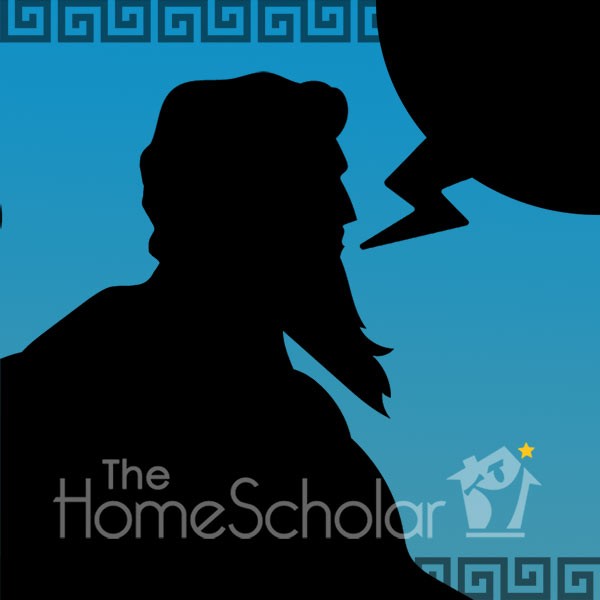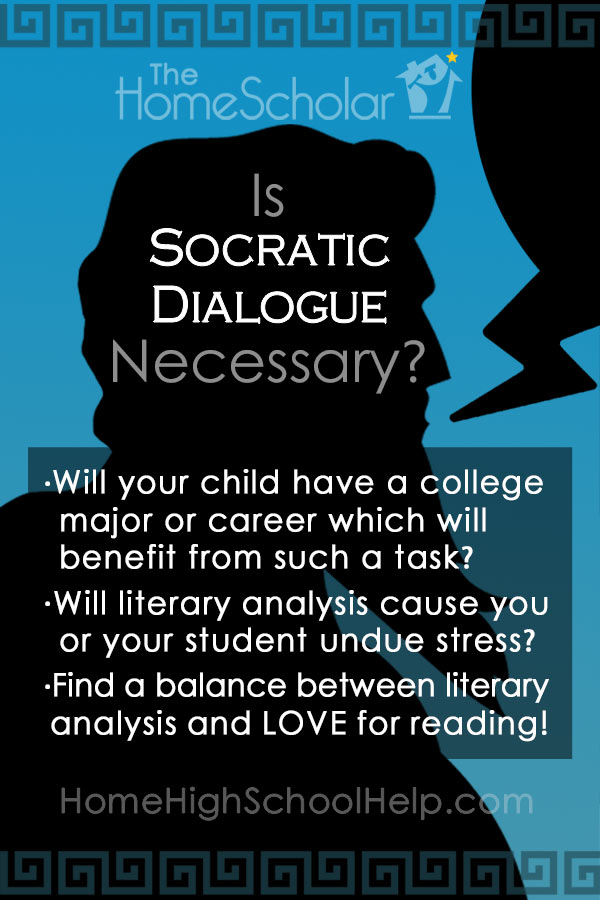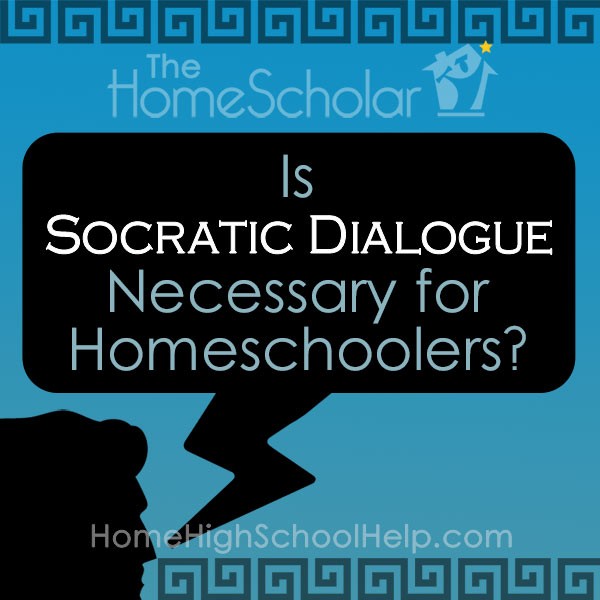I thought that all great homeschools had Socratic dialog. After reading the classics together, they enjoy deep and rich conversations about the nuances of great works of literature. They have meaningful discussions about historical perspective, plots and characters. They weave relevant insights within classical and modern literature. But none of that happened in my homeschool.
Instead, I got comments like “Great book, mom…. What’s next?”True confession: I really admire people who do literary analysis, but I simply wasn’t capable. I used a literature-based curriculum, but I hate literary analysis. We simply read and enjoyed books all the time. I used Sonlight Curriculum which requires a lot of reading, and I fed my book-hungry children even more literature from
The Well-Trained Mind, and other reading lists for the college bound. Much to my chagrin, we didn’t do any “literature analysis” we just enjoyed the books.
And so, I felt guilty.
It was a chronic, pervasive, low-level feeling of incompetence. Every homeschool mom has her “thing” that keeps her awake at night, and literature analysis was my nemesis. On tests and worksheets my children seemed to do terrible in reading comprehension, and yet they were reading all the time. They read all day long and late into the night. They laughed and cried and gasped when they read silently to themselves. They annoyed me with their constant encouragement to “read this mom!” They begged me to continue when I was reading aloud to them. How could they do so poorly in reading comprehension questions when they
seemed to understand what they were reading?
How do you know when you have succeeded in teaching your child English? When I was homeschooling, I was SO stressed out about literature analysis. It seemed like we always failed at reading comprehension and the review questions that were provided. I knew that I wanted my kids to LOVE reading, but I was still stressed about literature analysis. Every year, I spent so much time looking at Progeny Press, Learning Language Arts Through Literature, and other curriculum choices. Why was I failing? Why couldn’t I teach literature analysis? Every time I asked my kids “how did you like the book?” I never got any insightful dialog about the deeper meanings of the literature.
I finally decided that my goal for literature would be the same as my goal for Bible study. I decided that my goal in teaching the Bible was for the kids to LOVE their Bible, not analyze the Bible. Therefore, I would teach them to LOVE literature instead of analyzing it. I didn’t want to “beat the love of books out of them” by analyzing everything.
In retrospect, it all ended up great. Ironically, they both ended up in a “Great Books” honors program, analyzing literature at a college level by their own choice. They were of college-level literary analysis in honors class without a problem. Their only frustration with the class is reading the occasional book synopsis. “I would rather read the whole thing – they miss the best parts!”As one mother wrote, “Honest, good, hard-working Homeschooling Moms are doing the right thing when they don’t tear, claw, dissect and shred books the children used to love. You know, I thought ‘classic’ meant ‘boring’ until I was about 30. Suddenly it struck me that ‘classic’ means that thousands of avid readers made a list of books they Loved and Highly Recommend.”
What is successful literature instruction?
I failed at teaching literary analysis. I may have lost that battle, but I won the war. My children LOVE reading. When they came home from college, I felt like I could finally say I had succeeded in my goal. “For fun” they went to the library to get some reading material. Over their university break, my son Alex read the entire Shakespeare collection, my son Kevin read CS Lewis and Dostoevsky. I may have been stressed out when they were in high school, but I can honestly say that I achieved my goal: they LOVE reading. With my wonderful 20/20 hindsight, I now feel successful, but at the time I stressed over “reading comprehension” more than almost anything else.Keeping the focus on “love of learning” is so hard, though, when you are faced with a kid who may only answer “fine” when you ask them about their reading. It is the love of reading that matters.




